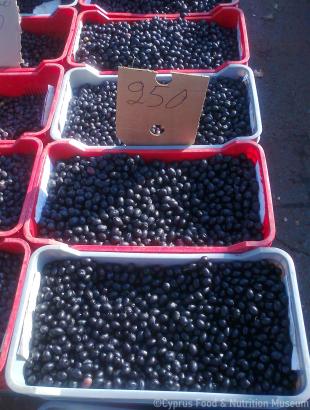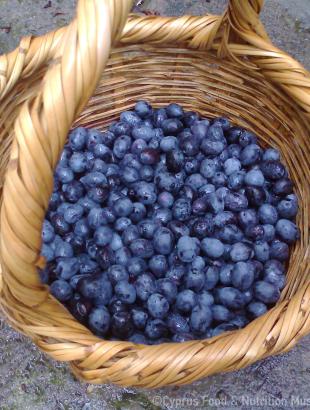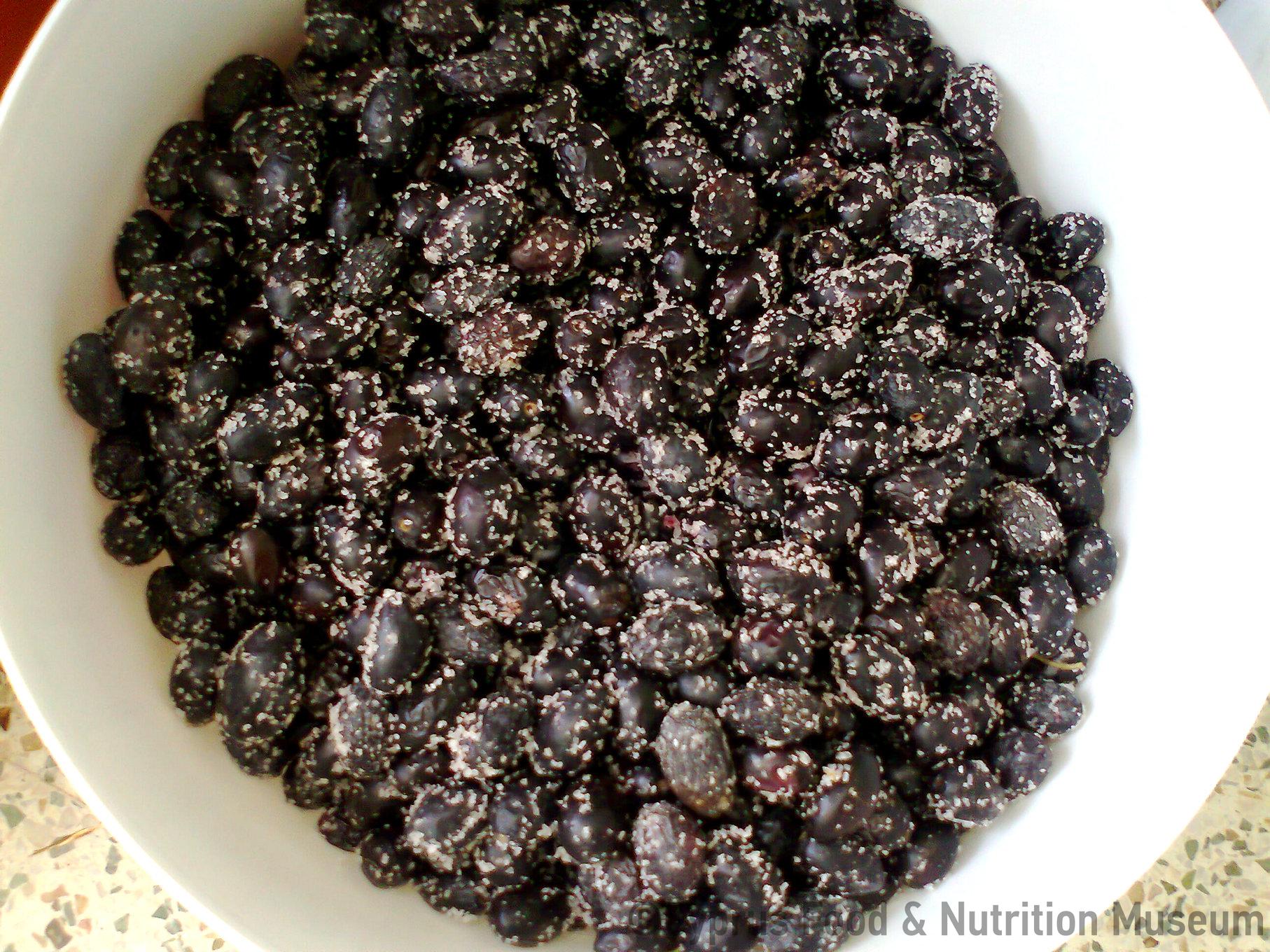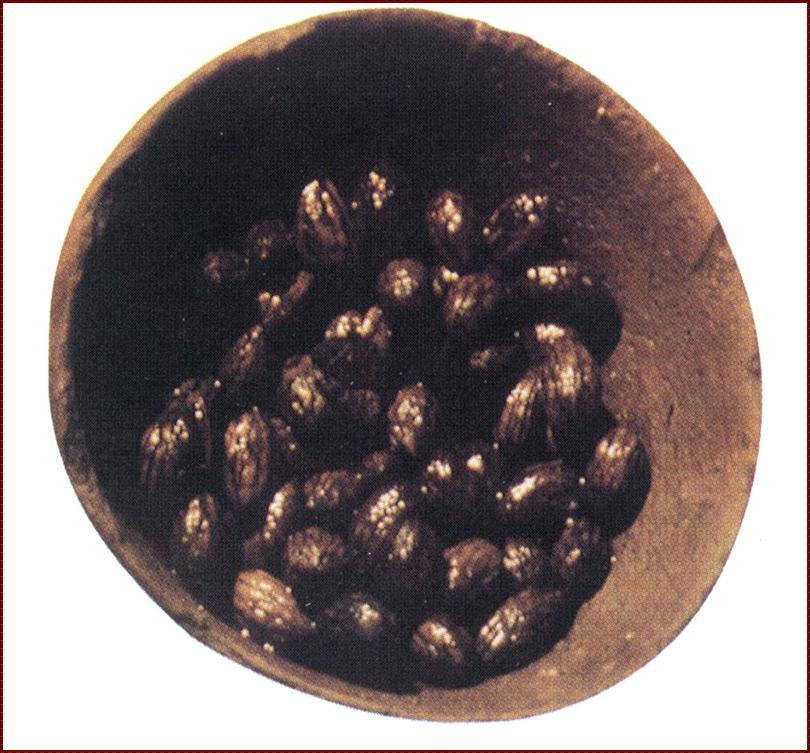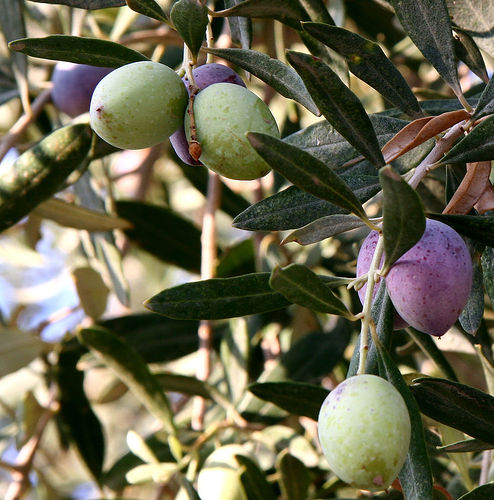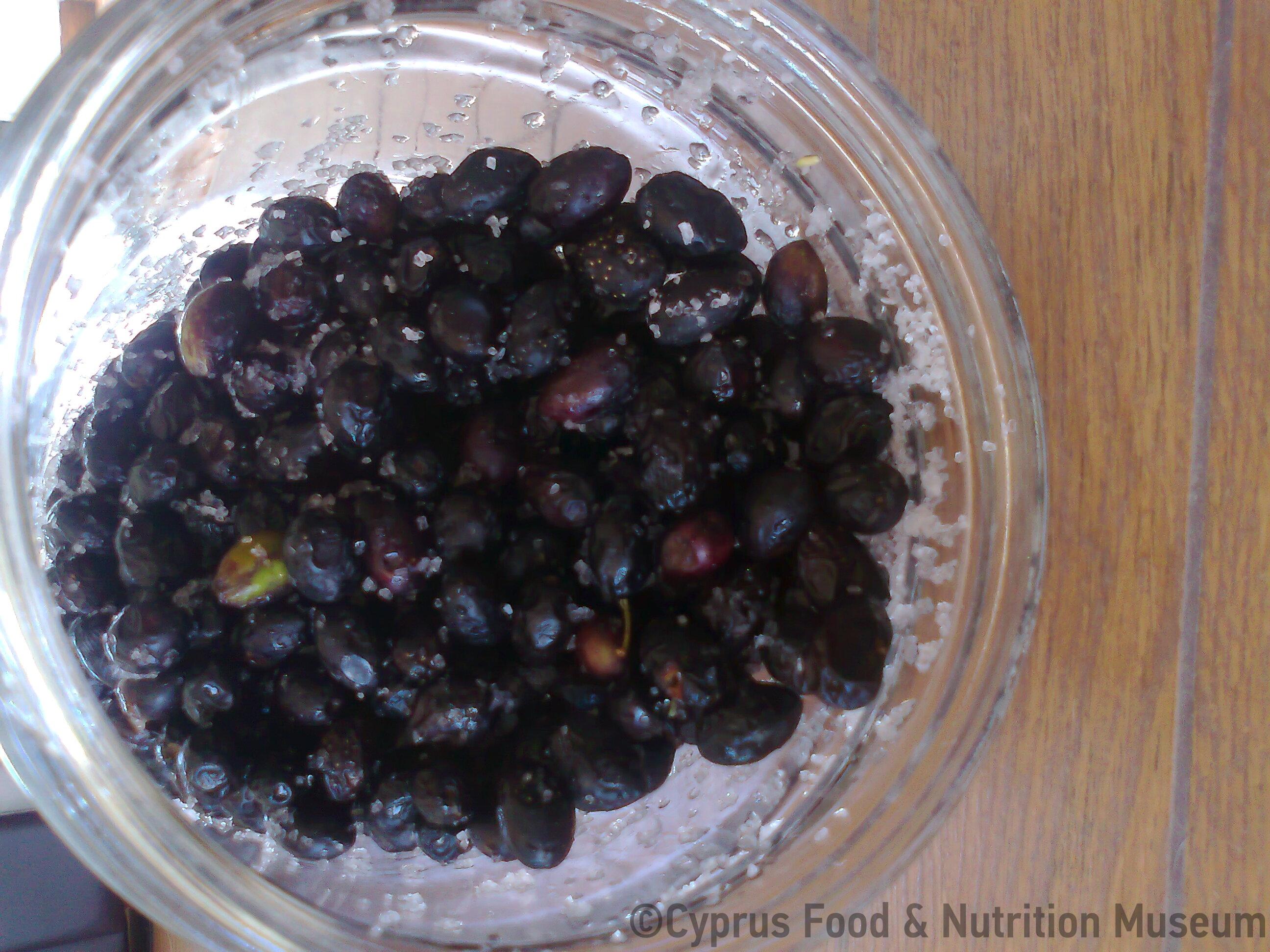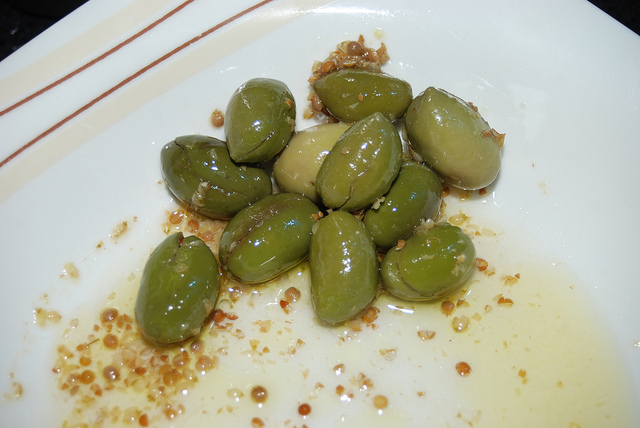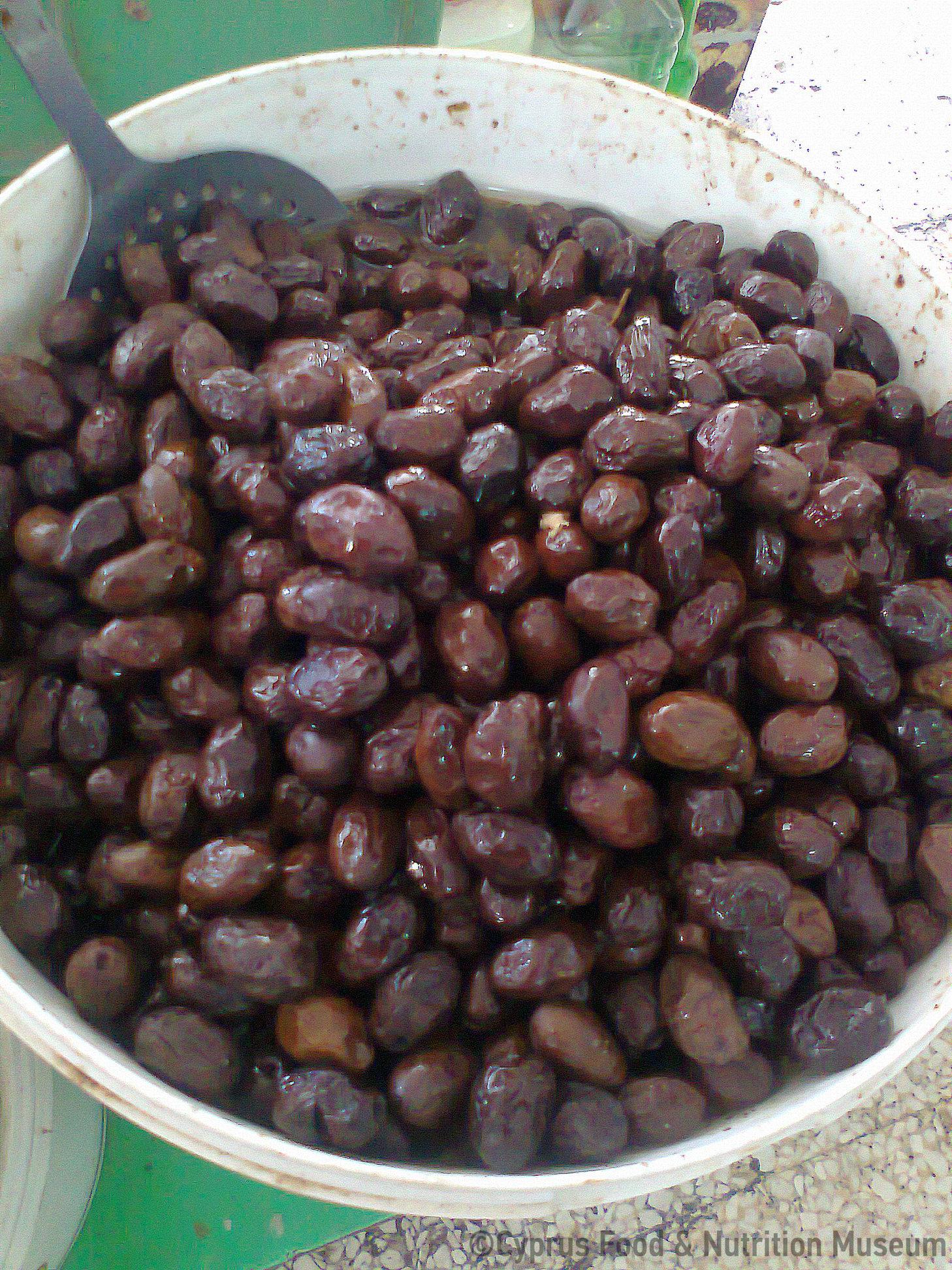Olives from a specific olive tree variety.
Name - Origin
Adrouppa is a shrivelled, over-ripe olive (Academic Dictionaries and Encyclopedias, "δρούπα").
It is a variety of large olives (Kypri 1983 [2003²], entry αδρούππα,η, 245).
ETYM. It is assumed that the word is derived from αδρός, which means large (Kypri 1983 [2003²], entry αδρούππα,η, 245).
According to another view, this particular name is derived from the ancient Greek word δρύππα [overripe], (Latin druppa) (Petrou-Poeitou 2013, article Αδρούππα, 22).
C. G. Yangoullis notes that adrouppa is the name for olives with a hard kernel, mainly cracked olives in vinegar and oil, and metaphorically speaking, a non-virgin woman. It is derived from the original δρύππα (Latin druppa, drupa) (Yangoullis 2009, entry αδρούππα - δρούππα - γρούπκια, δρούψ̆ια - τρούψ̆ια,η, 40).
The olive tree that produces adrouppa is called apostolic (the non inoculated olive tree) (Kypri 1983 [2003²], entry αδρούππα,η, 245 and entry αποστολιτζ̆ ή,η, 247).
Functional and symbolic role
Adrouppa olives are large, like Volos olives, with thick flesh, but not very tasty. They are not used to extract oil (Kypri 1983 [2003²], entry αδρούππα,η, 245), but only for consumption (Kypri 1979 [2002²], entry δρούππα and γρούππα,η, 140).
Additional information and bibliography
'Apostolic' olive trees, which produce adrouppa olives, are a species of olive tree between domestic and wild. The fruit is bitter but edible. In Cyprus they are found in two areas with this name: in Alona, in Pitsilia area and in the village of Vretsia in Paphos district. Two folk traditions concerning the name are reported, originating from the village of Vretsia in Paphos: "The local tradition says that they grew from olive pits thrown there by the apostles Paul and Varnavas during their first tour of Cyprus in the spring of 45 AD, when they stopped at that place to rest and eat on their way to Paphos. This is of course a later tradition, which tries to link these trees with the two apostles. We should bear in mind, however, that the term apostolic also meant in Cyprus the Linovamvakous (crypto-Christians), perhaps under the influence of the heretical apostles of Western Europe. The latter clashed with the Catholic Church because they supported and followed the vita apostolica, i.e. the pure life of the early Christians. The presence of apostolic olives near Vretsia, the village of Linovamvakous may refer basically to the characteristic of the region (the Linovamvakous), from which it spread and gave these olives their name" (Great Encyclopedia of Cyprus, vol. 2, entry αποστολιτζιές ελιές, 254)”.
Yangoullis K. G. (2009), Thesaurus of the Cypriot dialect. Interpretative, Etymological, Phraseological and Nomenclatural Dictionary of the Medieval and Modern Cypriot Dialect, Theopress Publications, Nicosia.
Kypri Th. D. (ed.) (1979 [2002²]), Materials for the compilation of a historical dictionary of the Cypriot dialect, Part A, Glossary of George Loukas, Publications of the Centre for Scientific Research, XLI, Nicosia.
Kypri Th. D. (ed.) (1983 [2003²]), Materials for the compilation of a historical dictionary of the Cypriot dialect, Part B, Glossary of Xenophon P. Pharmakides, Publications of the Centre for Scientific Research, IX, Nicosia.
Pavlides A. (ed.) (1984), Great Encyclopedia of Cyprus, vol. 1, Filokypros, Nicosia.
Petrou-Poeitou E. (2013), Where do they come from. Words and stories from the world of taste, Epiphaniou Publications, Nicosia.
Web source: Academic Dictionaries and Encyclopedias, «δρούπα».
Tonia Ioakim, Stalo Lazarou, Kyriaki Panteli / Petroula Hadjittofi, Argyro Xenophontos

